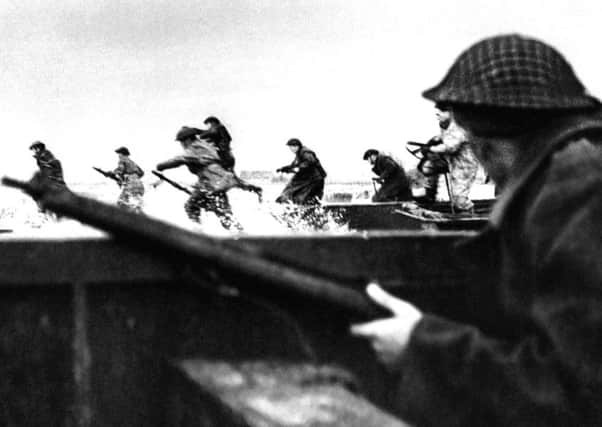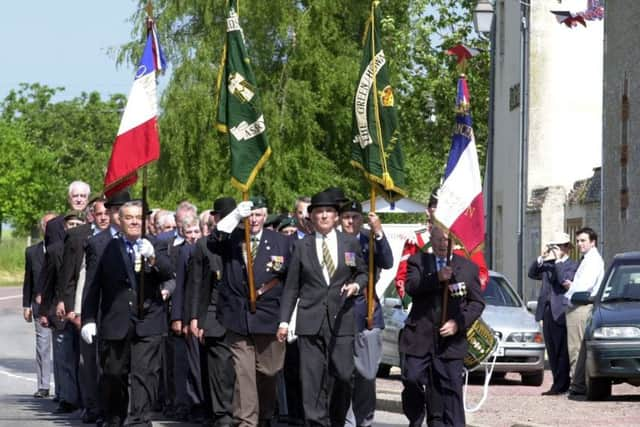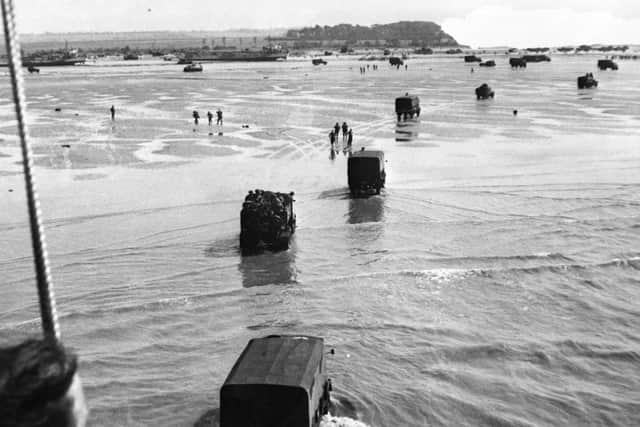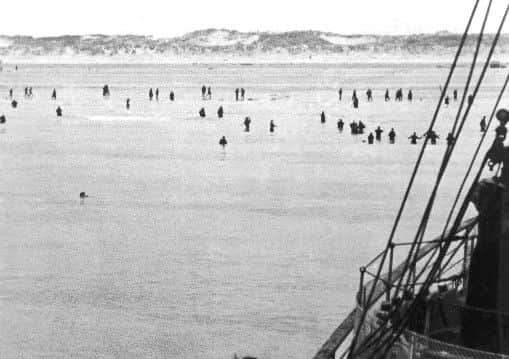The D-Day village in Normandy that will never forget its liberation by Yorkshire soldiers – Andrew Vine


And the moment the village was free, these men were transformed in an instant from relentless attackers to compassionate friends, concerned for the welfare of the villagers and safety of their children.
Crepon has never forgotten the Yorkshiremen of the Green Howards who came to free them, their courage and kindness, nor ceased to be grateful. Over the years, its people have welcomed back veterans as the most beloved of old friends, tears being shed on both sides at every reunion.
Advertisement
Hide AdAdvertisement
Hide AdThe village is home to a memorial to the Green Howards, on the main road leading to the coast where they landed that morning, which is lovingly tended and maintained by the villagers.


Its central figure of an unnamed soldier bears a close resemblance to the craggy features of Sergeant Major Stanley Hollis, the only man to win a Victoria Cross on D-Day, the honour being awarded partly for his bravery in opening up the way into the village. Everybody in Crepon, young or old, knows who he is.
If only more people here at home knew, or had the same reverence for what happened on that day 75 years ago as the people of Crepon do.
But even though Britain was vital to the liberation of Europe, too many people don’t understand the profound resonance the events of that day and the months that followed still have. Worse, they don’t care.
Advertisement
Hide AdAdvertisement
Hide AdThe codenames of the landing beaches – Gold, Juno, Sword, Utah and Omaha – ought to be as familiar as the names of the countries of the United Kingdom, but they aren’t. This ignorance has manifested itself before every significant anniversary of the Second World War, whether it be the Battle of Britain or Dunkirk, and has extended to the Allied leadership, whether it be Churchill or Roosevelt.


Yet it matters more than ever that people know about these events that shaped our world and continue to reverberate across three-quarters of a century.
Remembrance of D-Day needs to be much more profound than the pomp and ceremony of the events on Thursday, deserved though that will be.
The commemorations come against the backdrop of European elections that have seen far-right, ultra-nationalist parties gain ground across the continent, promoting views that are unsettlingly close to those that led to enslavement and genocide within living memory.
Advertisement
Hide AdAdvertisement
Hide AdOnly last week, Germany warned its Jewish population against the wearing of traditional skullcaps in public amidst a rise in anti-Semitic attacks, which makes the blood run cold.


This is a time of uncertainty for Europe in general when questions about national identity are too often provoking answers that are driven by hatred. It cannot be a coincidence that the rise of extremist politics comes as memories of the Second World War grow more distant.
There will inevitably be an undertone of sadness to the commemorations, and not only because the sacrifices of that day and the months afterwards are central to them.
This will be the last milestone anniversary at which substantial numbers of veterans are present. They are all in their 90s now, and their ranks thin with each year. Five years ago, the Normandy Veterans Association was disbanded because so many had passed.
Advertisement
Hide AdAdvertisement
Hide AdBut even when there are none left, we must continue to honour their memory, not only because of their bravery on that overcast June morning, but because of what they represent. They were trailblazers towards a free and peaceful Europe, and to forget that is to take for granted how hard-won freedom was.
Not that the veterans ever saw themselves as such.
Over the course of more than 35 years, I’ve talked to dozens of men who went ashore on D-Day – British, Canadian and American. Each was modest to the point of self-deprecation, smilingly batting away the notion of heroism, all insisting that uppermost in their mind was simply getting on with the job.
Drawing out more than that always required a little coaxing, and the detail that emerged was often hair-raising – and not just concerning what happened on the landing beaches and then inland on the long, brutal slog towards liberation.
For all, the day had coloured the rest of their lives. Some had physical scars that were permanent reminders, and others suffered from what we would now recognise as trauma.
Advertisement
Hide AdAdvertisement
Hide AdLike the veteran who was tortured until the end of his life by the realisation that a young German he killed was probably trying to surrender, not attack, when he leaped from a dugout; the restaurateur plagued by flashbacks of death and mutilation that brought him out in a sweat by day and night; the joiner who suffered a breakdown 50 years afterwards because he never felt able to unburden himself of what he had seen.
They gave more than the world had a right to expect, not just on D- Day, but during the 10 hard months of fighting that followed. None would have dreamed of claiming themselves as heroes, still less as pioneers of a free Europe where people can live, speak and think as they choose. To them, such notions would have been boastful.
But they were both those things, all the 156,000 men who charged ashore in Normandy into a blizzard of gunfire and shelling that morning. Like the people of Crepon, we should never cease to remember and give thanks.
Read Andrew Vine in The Yorkshire Post every Tuesday.